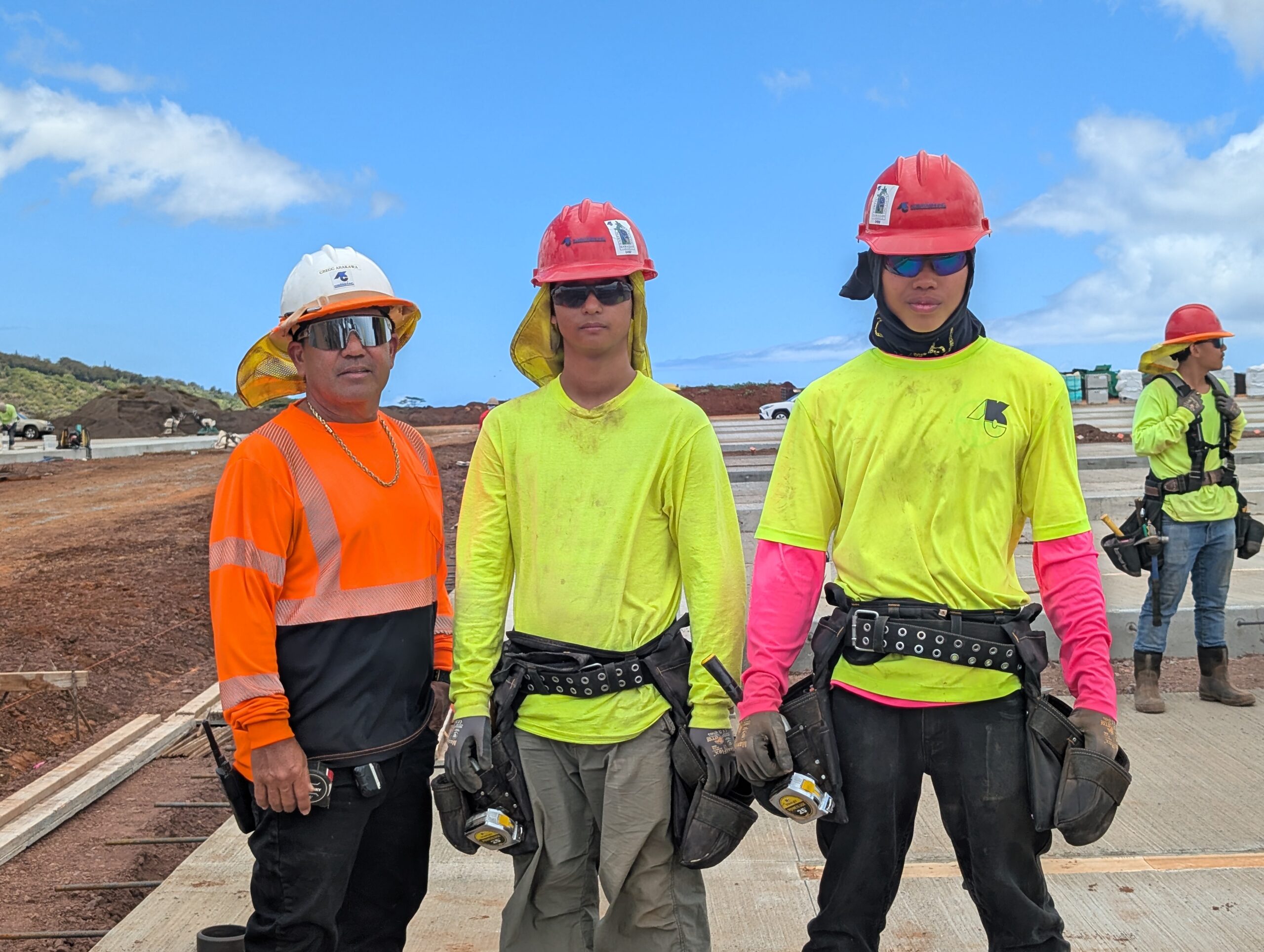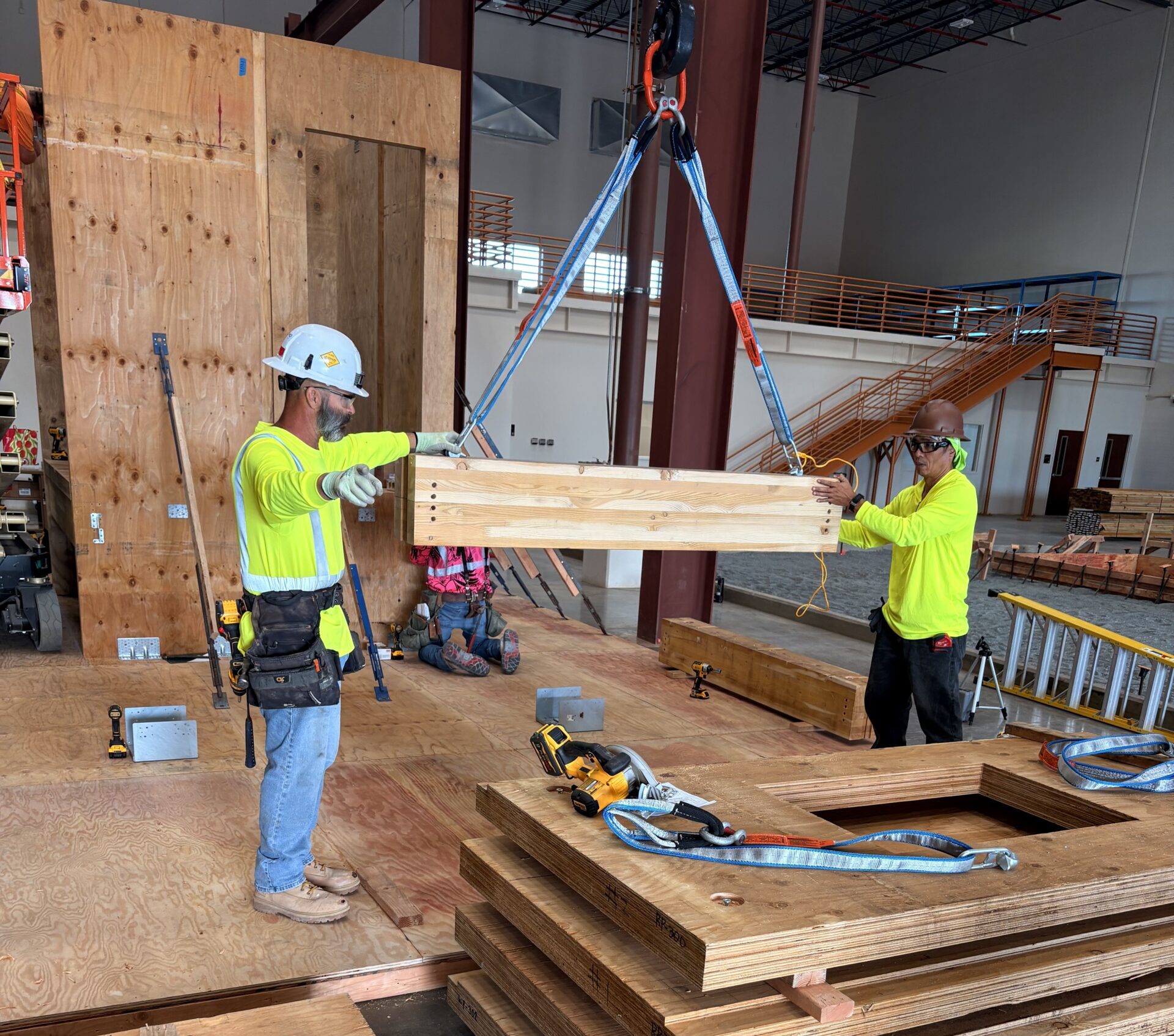Building Futures: The Revolutionary Impact of Mentorship in Hawaii’s Construction Industry
In the midst of Hawaii’s construction boom, a significant challenge looms: a gap in skilled labor that threatens to slow the progress of numerous housing, commercial, and educational projects. Addressing this critical need, the Pacific Resource Partnership (PRP) and the Hawaii Regional Council of Carpenters (HRCC) have spearheaded an innovative carpentry mentorship program designed to cultivate the next generation of skilled workers and ensure the industry’s robust growth.
A Transformative Approach to Training
The mentorship program aims to dramatically increase the graduation rates of carpentry apprentices, a vital measure to combat the current labor shortage plaguing the industry. With only about 25% of apprentices completing their journey to becoming licensed carpenters, this initiative is a timely and strategic investment in the construction workforce’s future. Kyle Chock from HRCC sees it as a crucial move to sustain and advance the industry, offering apprentices a lucrative career path free from the constraints of student debt.
Mentoring for Success and Retention
Retention is a pivotal focus of the mentorship program. Often, apprentices fail to complete their training due to various challenges. To counteract this, mentors are rigorously trained to provide the support, knowledge, and encouragement apprentices need to persist and succeed. Dale Maeda, a mentor in the program, highlights the importance of effective communication as a tool for transferring knowledge and fostering professional growth in apprentices.

Inspiration and Leadership
Timmy Chang, the head football coach at the University of Hawaii, provided valuable insights into effective mentorship at the program’s conference. His leadership style, characterized by motivation and guidance, exemplifies the qualities that mentors in the construction industry should emulate. Darrell Seto from HCATF applauds Chang’s approach and emphasizes the importance of mentors embodying these leadership principles to inspire and support their apprentices.
Program Structure and Benefits
Mentors receive a stipend and are tasked with overseeing three to five apprentices, maintaining regular contact, and offering continuous guidance throughout their training. The mentorship curriculum, covering carpentry, drywall, and millwright skills, ensures apprentices are well-rounded and job-ready. According to Chock, participants can expect to gain hands-on skills, improve listening and coaching abilities, and learn the art of giving constructive feedback.
The Future of Construction in Hawaii
As Hawaii’s construction industry continues its upward trajectory, mentorship programs are becoming increasingly crucial in shaping a capable, reliable, and innovative workforce. This initiative doesn’t just create skilled carpenters; it fosters a community of professionals equipped with the knowledge, skills, and ethical grounding to propel the industry forward. The program’s broader impact is undeniable as it strengthens the entire construction ecosystem, ensuring continued growth and development across the state.
The Takeaway
In an era where skilled labor is a prized commodity, the mentorship program initiated by PRP and HRCC is more than a training initiative; it’s a commitment to the future of Hawaii’s construction industry. By empowering individuals through mentorship, the program is not just building careers but is also laying the groundwork for a more prosperous and sustainable industry.
Read More
- For further insights on the mentorship program visit tinyurl.com/hi-news-now-mentorship
- Additional details: KHONtinyurl.com/khon-mentorship
- Learn about leadership programs at carpenters.org/leadership-programs/


